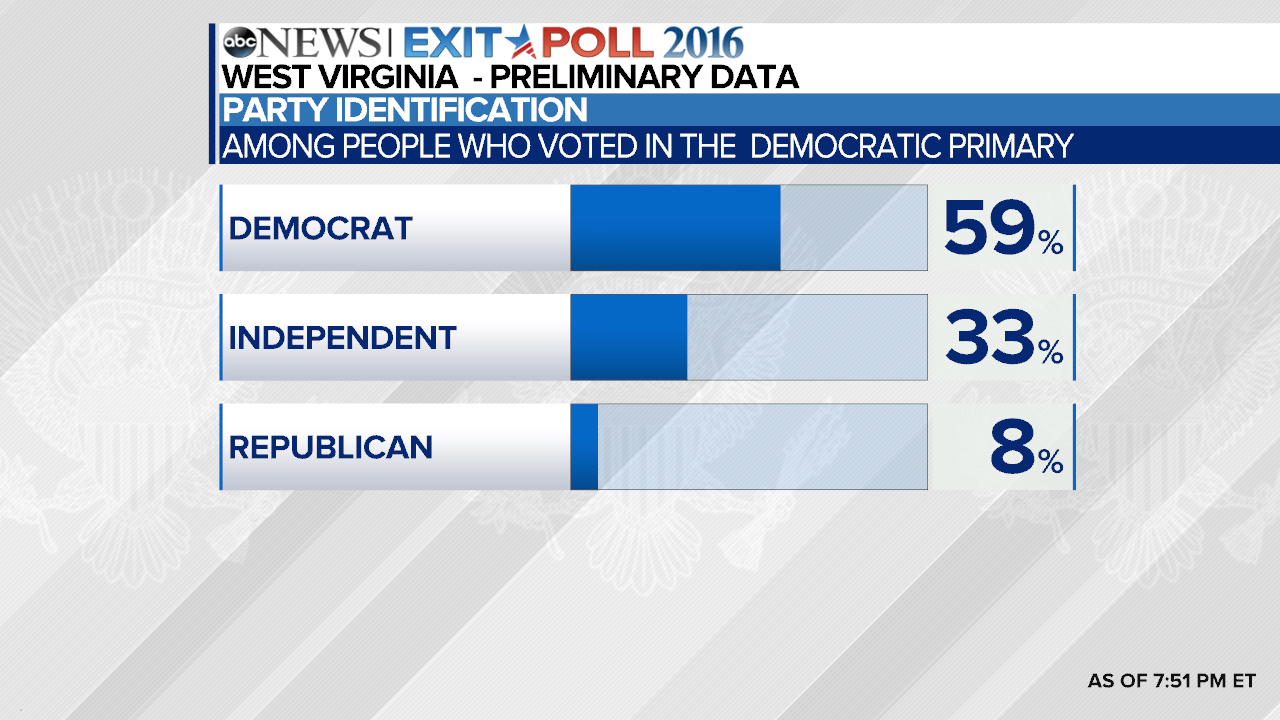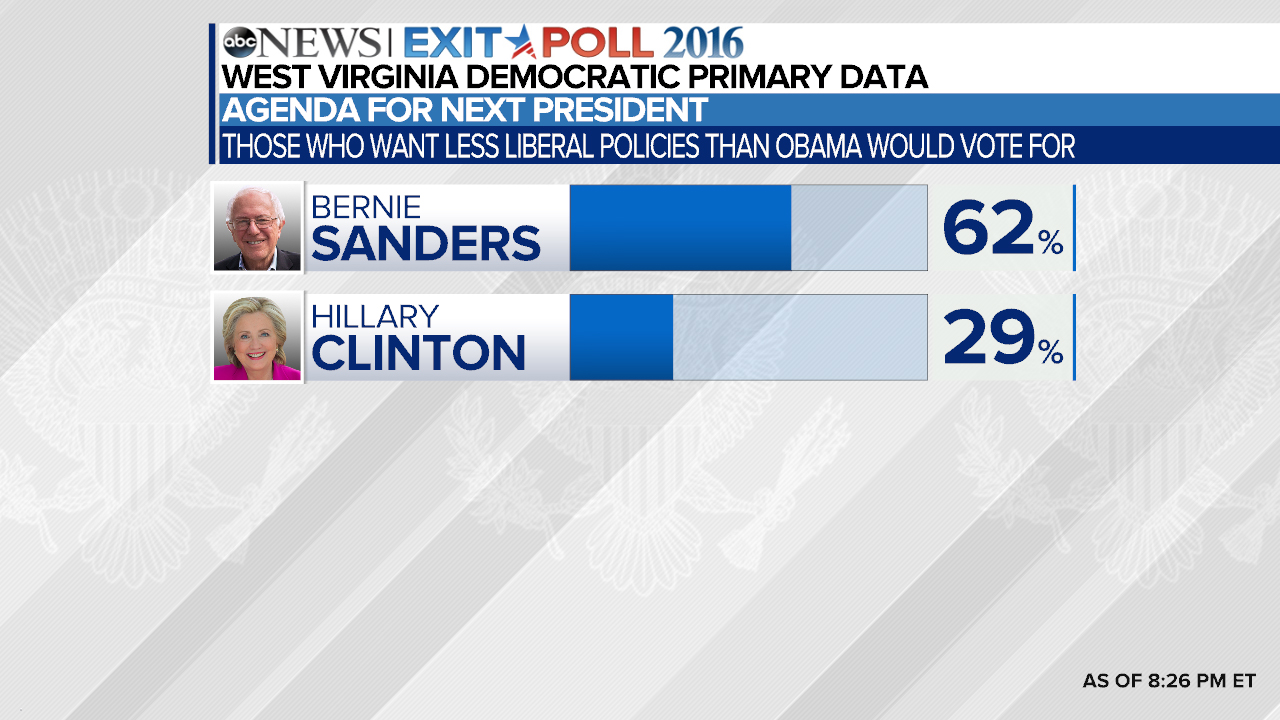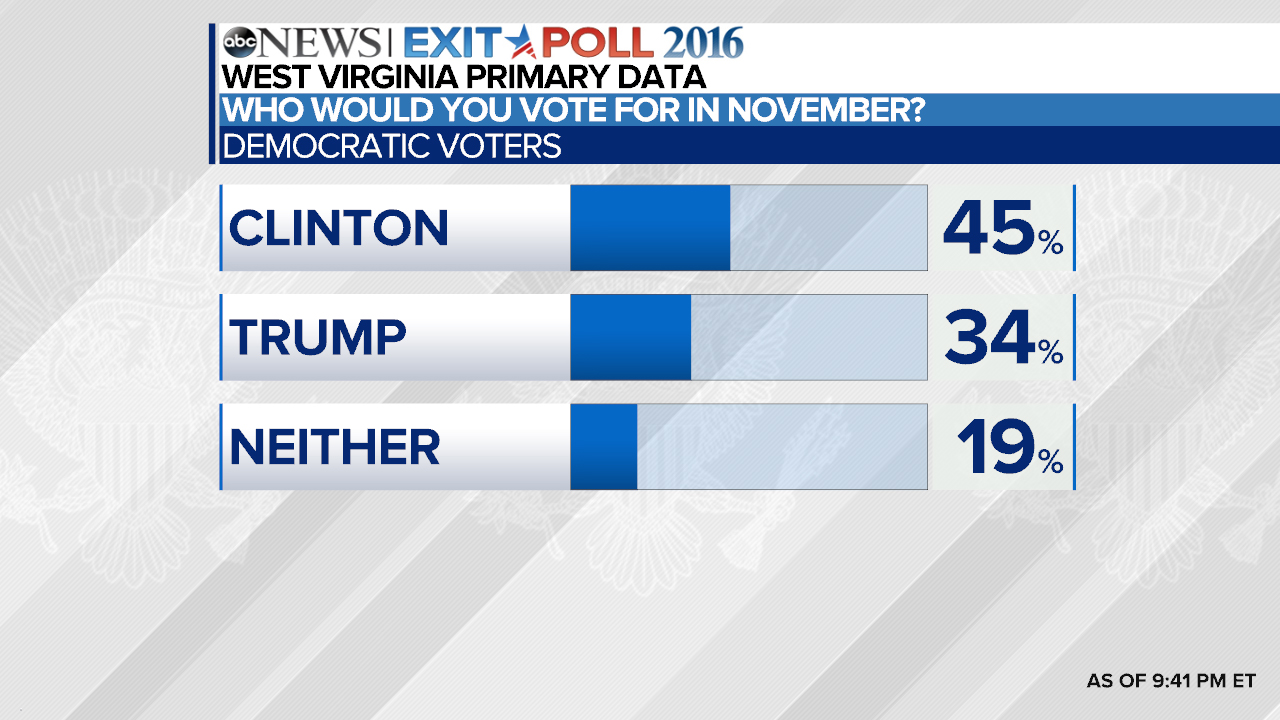West Virginia Democratic Primary Exit Poll Results
Who turned out in Tuesday's primaries? What motivated their votes?
— -- Who turned out in Tuesday's West Virginia Primary and what motivated their votes?
The following is reportable as “preliminary” exit poll results from the West Virginia Democratic primary. Please note that exit poll results can and do change as additional data come in – sometimes substantially. Check back for updates.
The highest level of economic concern in any Democratic primary this year and greater-than-usual turnout among men, whites, political independents and critics of President Obama characterized Hillary Clinton’s challenges in the West Virginia primary, her overall lead in delegates notwithstanding.
Extraordinary economic stress in the state was evident in preliminary exit poll results:
• Six in 10 voters said they were very worried about the direction of the nation’s economy in the next few years, by far the highest level of economy worry in a Democratic primary this year – far above the average, 40 percent, and rivaling the customary level seen in Republican primaries.
• Nearly six in 10 said the economy and jobs was the most important issue in their vote, again by far the highest in any Democratic contest this year.
• A majority in the state thought trade with other countries takes away more U.S. jobs than it creates, vs. only a little more than a third who said it creates more jobs. The division has been much closer, 45-39 percent, in previous states where the question has been asked.
These economically aggrieved voters not only were far more numerous in West Virginia than in other Democratic primaries, they also were much more supportive of Bernie Sanders here than elsewhere. Among anti-trade voters, those very worried about the economy and those focused on the economy and jobs, majorities voted for Sanders.
Coal workers: The state's depressed coal industry is a key reason for its economic woes, and three in 10 West Virginia Democratic primary voters said there was a coal worker in their household. Perhaps reflecting Clinton’s gaffe about creating jobs “because we’re going to put a lot of coal miners and coal companies out of business,” a majority of these coal household voters went for Sanders.


Race: West Virginia also was a tough state for Clinton demographically. Whites accounted for nine in 10 primary voters in preliminary exit poll results, far above the 61 percent they’ve averaged across the 2016 Democratic primaries. And the exit poll indicated that Clinton did worse among whites in West Virginia than her even split with Sanders in this group in previous contests.
Gender: Women have outnumbered men by 58-42 percent overall in previous contests, a tremendous boost to Clinton – but in West Virginia, the advantage in turnout among women was smaller. Sanders also outperformed his usual numbers among women, winning them 52-38 percent.
Party: Completing the demographics trifecta, political independents accounted for a third of voters in West Virginia in preliminary exit poll results, well above the average to date, 22 percent. Sanders took six in 10 of these voters, about his usual.

Obama: Further, only about quarter of Democratic primary voters in West Virginia said they wanted next president to continue Obama’s policies, a key group for Clinton to date; that compares with 54 percent on average in previous contests this year. Nearly three in 10 wanted more liberal policies, and four in 10 wanted less liberal policies, roughly three times the average this year. Both non-Obama groups favored Sanders in today’s primary.


Qualities: Roughly six in 10 voters in preliminary exit poll results say honesty or empathy are most important to their vote; they’ve been more likely to support Sanders (especially honesty voters) to date. Fewer than four in 10 instead call electability or experience most important, voters among whom Clinton’s dominated. Honesty/empathy voters are outnumbering those focused on experience/electability by a bigger margin than usual in West Virginia.
Vote in November: West Virginia Democratic voters were among least liberal so far this year; fewer than half said they were liberals, vs. an average of 62 percent in previous Democratic contests. And in one last notable result, about a third in preliminary exit poll results said that, given a Clinton-Donald Trump or a Sanders-Trump race, a third said they’d vote for Trump in both cases – a high level of support for Trump among Democratic primary voters, marking both the depth of the Clinton-Sanders rivalry in the state and its unusual Democratic voter profile.

